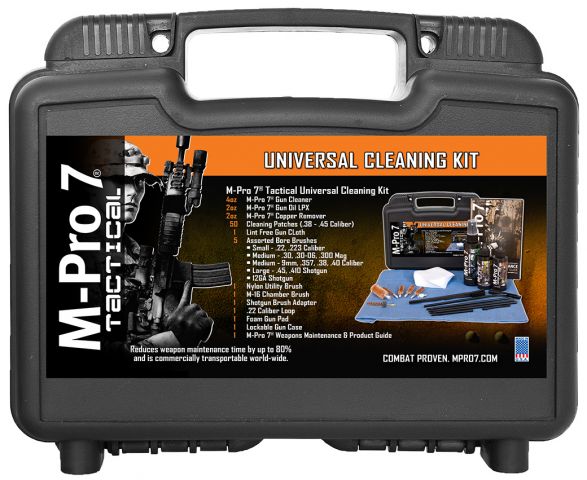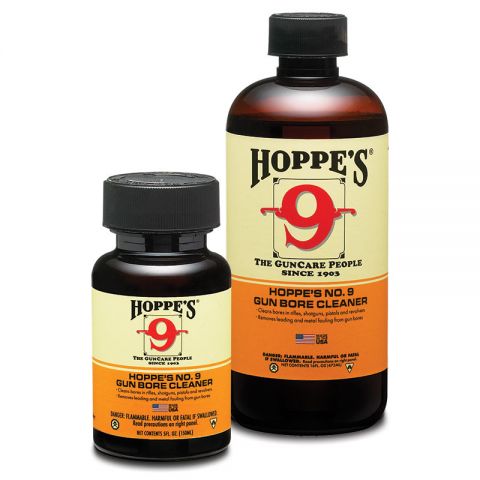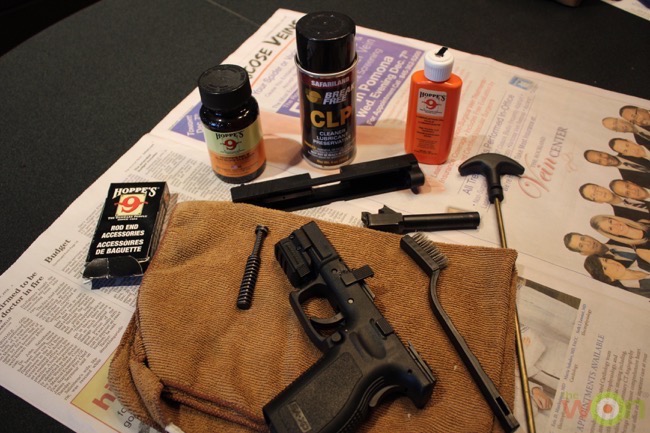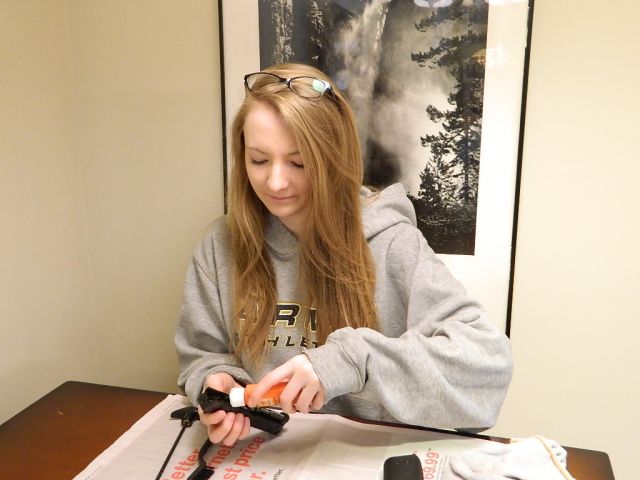When your houseguest says to you, “If you bring me all your firearms, I’ll clean them,” you don’t hesitate. You run to the gun safe and pull out the boxes—all of them. When he’s also a military guy, you know your guns will soon be cleaner than they were the day you brought them home. Sound like a dream come true? It actually happened to me this summer.
We had just returned from a fun afternoon at the range; My guest J.P., a former Marine and current National Guard platoon leader, retrieved his cleaning kit from his Jeep and spent the rest of the afternoon disassembling, scrubbing down, lubricating and reassembling not only all of his pistols, but all of mine as well.
Love it or hate it, firearm maintenance is a necessary evil. Sometimes I find cleaning my pistols cathartic; other times it’s a chore that I tend to put off. But firearm maintenance is probably the most important part of owning a gun. It’s the one thing that’s 100 percent in our control, and the one thing that can literally make or break our firearm firing properly when we need it to.

When it comes to firearms maintenance, most people occasionally get a little lax, myself included. When I was new to guns, the supplies would come out the second I got home from the range, and I fieldstripped, cleaned, and gave a once-over to any gun I used. Freshly oiled, they were stored in their protective cases until I retrieved them for the next fun day at the range. But as time went on, I’d put maintenance off, locking my guns away without cleaning them every time. If they were lucky, sometimes they’d get a quick swipe with a bore snake and some Hoppes No. 9 before they hit the case.

Realizing the wealth of experience and gun-maintenance information that I currently had under my roof, I chatted with J.P. while he cleaned my guns. I asked him first to tell me about the cleaning kit he was using. It looked conspicuously different that the ripped plastic packaging that still held my cleaning kit. His was in a large, black, hard plastic protective case with a handle. Inside were solvents, brushes, patches and rods of varying sizes. He explained that while his kit of choice—the MPro-7 Universal Cleaning Kit—was a little more expensive than the one I got at the discount chain, it had adaptors, rods and accessories to clean everything from his 9mm pistol to his M4.
I recently came upon a product called Swab-its Bore Tips. These reusable foam tips are shed-resistant and fiber free, unlike the cotton swabs I had been using for years. They’re available in your choice of bore sizes, and you can purchase only what you need, without getting a lot of product you may never have use for. What’s nice about the Swab-its is they’re washable and reusable.

Here’s why regular gun cleaning is so important. Each time you fire a round, tiny particles are left in the barrel. Given time these particles build up and form corrosion, which will eventually change the accuracy of the gun. Aside from being cleaned regularly, carry guns also need to be wiped down at the end of each day to remove the oil and sweat it accumulates from contact with your body, especially in the hot summer months.
Here are some tips for keeping your firearms clean and well maintained. Safety note: Anytime you’re working with your firearm, make sure the gun is cleared and there is no live ammunition in your vicinity. Many accidental discharges have occurred by owners who were cleaning their guns. Don’t be that guy or gal; be safe.

The basic steps of gun cleaning are simple. Again, your owner’s manual may have information specific to your gun, but here are the basic steps:
Your firearm works hard for you at the range. As J.P. said, keeping a clean and well maintained pistol or rifle will ensure that your gun is ready to go should you ever need to use it. It’s also a great time to inspect your parts for unusual wear and tear, cracks, splits or anything that just doesn’t look right and might need the attention of a gunsmith.
Sure, J.P. is picky about the way his firearms are cleaned; he knows firsthand the importance of having a firearm ready to fire when necessary from his time overseas with the Marines. We thank him for his service, both past and present, and for volunteering to teach me how a professional cleans his guns. I’m hoping that next time he visits, my clean pistols will pass his inspection.
Annette Doerr is a freelance outdoor writer and business services consultant living in suburban New York. This married mother of two is an NRA Certified Pistol Instructor and Range Safety Officer. Annette is not only passionate about the sport of shooting, she also loves helping new shooters get involved, especially women and teens. An active equestrian, she enjoys riding her American Quarter horse, Cody. She volunteers in greyhound rescue and adoption, and shares her home with Casper, a rescued racing greyhound, along with her her cat, Tony, and her husband, Bob. Visit Annette at WeShoot2.com, her personal blog. View all posts by Annette Doerr